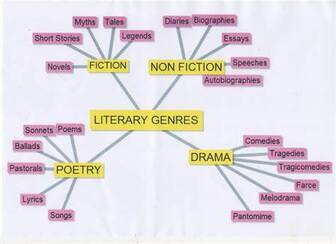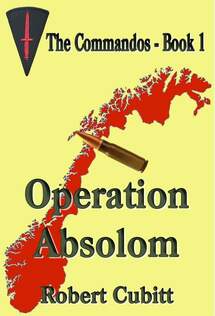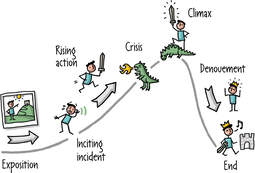 It is disturbing to read on social media, especially Twitter, that so many authors struggle with writing a synopsis for their book. After all, they have just written between 80k and 140k of beautiful prose but are struggling to write just one page of A4 that will communicate to an agent or publisher what the book is about. Perhaps, like panic, the under confidence of some authors is spread to other authors like a virus, making perfectly confident writers suddenly doubt their ability. It is about the only explanation I can think of. But rather than try to analyse the cause perhaps, in this blog, I can help authors by offering some practical advice.  The starting point of any task is to establish a goal – something to aim for. Fortunately, agents and publishers have already done that for you, because they know what they want from a synopsis. To put it simply, they want to know what your book is about in as simple language as possible, so that they can be confident that the author knows what it is about. You may wonder about the last part of that sentence. After all, surely the author knows what their book is about, don’t they? Apparently not. The author may think they have written an exciting fantasy/sci-fi/hist fic/YA/whatever novel, but if they can’t explain that in simple terms, the agent (or publisher – I’ll stop using both terms from here) won’t believe that they know what they are doing. "Pick one genre!"  To start a synopsis, you must first clarify what genre it is written for. If you think your book crosses genre boundaries, eg a fantasy that includes a romance, then which genre is it mainly aimed at? In life I have often said that you don’t always have to pick a side, but in writing a synopsis you do have to. Pick one genre! If the romance element of the story is crucial to the fantasy plot, you can cover that later (or vice versa if romance is the main genre). And don’t start getting into sub-genres, the way Amazon categorises books – they have something like 16,000 different genre classifications. In reality there are between 35 and 50 recognised genres, depending on who you ask. Purists would argue that it is an even lower figure, but that is why they are called purists.  Picking your genre is vital because your agent has to know that the book has a chance of making money. Writing in an unfashionable or unpopular genre is going to dispatch your novel to the reject pile faster than a split infinitive ever would. Also, there are many agents who specialise in a specific genre and they want to know up-front that they are the right agent for your book. They won’t waste their time reading your book if it isn’t in their genre. The next step is to write a brief (75-100 word) summary of the plot. It is suggested if you can’t summarise the plot in that few words, then you don’t really know what you have written. To give you some idea of what I mean, try this summary of one of our author’s books.  “Operation Absolom tells the story of a young man, Steven Carter, who enlists in the British Army during World War II. Bored with garrison duties he decides to volunteer for a more adventurous life with the newly formed commandos. In doing so he gets far more adventure than he bargained for and comes close to losing his life in the freezing waters off the coast of Norway. In order to survive, he has to dig deep into reserves of courage and determination that he didn’t know he possessed.” To save you counting, that is 88 words. The key thing about that summary is that it tells you when the story is set (World War II), who the protagonist* is (Steven Carter), what he gets himself involved in (fighting in the commandos) and why he gets involved (seeking adventure). It also tells you that he gets more than he bargained for, which is the source of much of the drama in the plot. The last sentence indicates a degree of personal growth taking place during the story- which means that the character develops as the story goes along.. (FYI you can find out more about Operation Absolom by clicking on the cover image)  The main body of the synopsis is a longer description of 300 to 500 words. The way I go about that is to take each chapter in the book and write a single sentence saying what that chapter is about. Again, using Operation Absolom as an example, here’s what we came up with.
And so on. If there are chapters that just deal with sub-plots, delete those sentences. There is nothing wrong with having sub-plots, but the agent is more interested in the central plot, so confusing things with sub-plots and using up valuable word count along the way isn’t going to help your case. Now join the sentences up into sensible paragraphs, emphasising the major points of the story. If you are familiar with the way story arcs work, with highpoints preceded by build-up and followed by aftermath, then it is important that the description follows the same pattern, so that the agent can see where the high and low points are and therefore get some feel for the pace of the story. This is what we did with the three sample sentences we produced above: “After a conflict with his commanding officer, Steven Carter decides to volunteer for the commandos. His training in Scotland reveals an unconventional approach to soldering that risks cutting his commando career short, but he survives to join his new unit, 15 Commando. At once he is pitched into training for a top secret operation, Operation Absolom.” I’ve used only 57 words to cover almost a quarter of the book, leaving me plenty of word count still available to deal with the more action packed parts of the book. Note the hints and teasers used to tantalise the reader eg conflict, unconventional. If you are struggling to keep below the 500 word level, then you are probably including non-essential information.  As well as sub-plots, don’t include: - Dialogue, - Descriptive passages, - Inconsequential characters, - Backstory (you may hint at this with phrases such as “troubled past” or “difficult family life”), - Moralising messages - Metaphors (speak plainly). If you include any supporting characters, refer only briefly to their role in the plot and their relationship to the protagonist, eg Sam is Frodo’s best friend and would rather die than be left behind in the Shire. Later in the story he takes on greater significance in making sure that Frodo fulfils his purpose.  Beware the search for perfection! Beware the search for perfection! The final, short, paragraph just closes the synopsis off in a neat and tidy manner. Tell the agent what the total wordcount is and if you have any plans for a sequel. If the sequel is already underway, say that. If book is intended to be part of a series, say how many books you are planning for it (agents like to know they can expect a long term relationship with an author (with accompanying long term income)). Finally, beware of seeking perfection. You can spend a hundred hours on drafting and re-drafting 40 versions of a synopsis and it probably won’t be any better than the second or third draft. The agent doesn’t care if the synopsis isn’t perfect because, unlike the book, it isn’t something that is ever going to be published. The agent expects it to be properly spelt and grammatically sound, that is all. What they are really interested in is whether or not the story sounds interesting enough to read all the way through. How do you know if your synopsis is good enough? The same way as you know your book is good enough. Show it to someone whose opinion you value and ask “Would you read this book based on this synopsis?” As always, don’t rely on family or friends to be honest with you – they love you and tend to say what they think you want to hear. Use someone who can be relied upon to be impartial, such as your beta readers. If you haven’t got anyone to whom you can show your synopsis, send it to us. You can find our address on our “Contact” page. Make sure you tell us that you just want some feedback on it, so we know you aren’t submitting your book (though we may invite you to submit it if we like the sound of it). * Always use the word “protagonist” in a synopsis, not “main character” or “MC”. It is more professional sounding. There is only ever one protagonist. Anyone else is a “supporting character”. For the same reason the “villain” is always the “antagonist”. If you have enjoyed this blog and want to make sure you don’t miss future editions, you can sign up for our newsletter. We’ll even send you a free ebook for doing so. Just click the button below.
0 Comments
Leave a Reply. |
AuthorThis blog is compiled and curated by the Selfishgenie publishing team. Archives
June 2025
|
 RSS Feed
RSS Feed